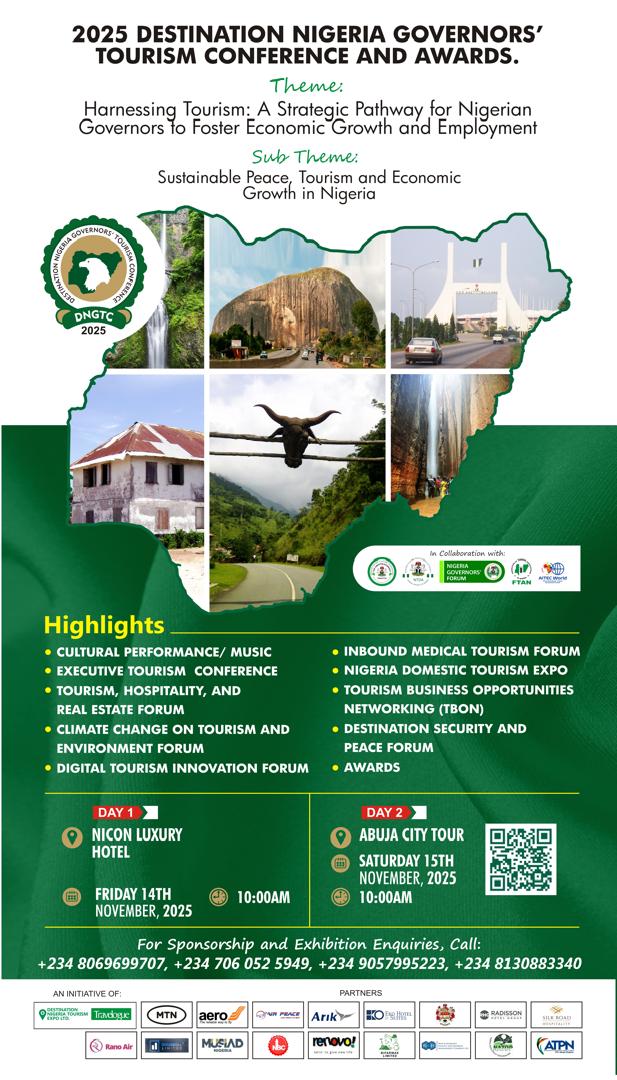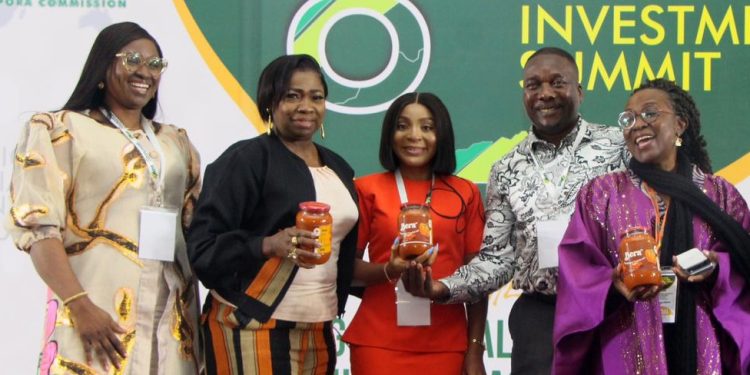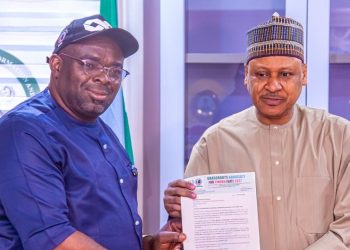The three-day 8th Nigerian Diaspora Investment Summit (NDIS 2025) which came to an end with high-profile pitching sessions, spotlighted investment-ready opportunities across Real Estate, Health, and the Creative, Entertainment, Agriculture and Sports industries.
According to the statement released by the Nigerians in Diaspora Commission (NIDCOM), revealed that each session was moderated by distinguished sector experts who guided entrepreneurs in presenting their innovations to diaspora investors.
The statement further revealed that the Real Estate Pitching Session moderated by Dr. Henry Ogunjobi, underscored the sector’s transformative potential.
According to him “Nigeria is at a turning point, where expertise, capital, and global exposure can redefine real estate and infrastructure development”.
Ogunjobi urged pitchers to clearly define solutions and business structures: “Tell us the challenge you are solving, your corporate structure, and the support you need. Clear, actionable pitches help connect ideas to the right investors both here and online.”
Health Pitching Session moderated by Jane Osaretin Ifechukwu, highlighted Nigeria’s persistent healthcare challenges, fragile primary care facilities, and supply gaps while emphasizing opportunities for diaspora-backed innovation. She said, “Nigeria faces numerous health challenges, but this is also opportunity for bold, practical solutions”.
She said, “Nigeria faces numerous health challenges, but this is also opportunity for bold, practical solutions”.
Ifechukwu encouraged entrepreneurs to be precise:“We want to hear what problem you are solving, how you are structured, and what specific support will turn your idea into impact. This is how we build partnerships that strengthen our national health ecosystem.”
Creative, Entertainment & Sports Pitching Session moderated by Beverley Agbakoba Onyejianya, focused on Africa’s booming creative economy. “We are witnessing a renaissance across Nollywood, sports tech, and the creative industries. These sectors are no longer cottage industries — they are scalable, exportable, and globally competitive,” she said.
“We are witnessing a renaissance across Nollywood, sports tech, and the creative industries. These sectors are no longer cottage industries — they are scalable, exportable, and globally competitive,” she said.
She highlighted how the rise of local streaming platforms, digital fan engagement in sports, and creative skills-based industries “signals a new era where African talent becomes a major global export.”
Across all the sessions, moderators emphasized innovation, scalability, and investor-readiness, and with the guiding entrepreneurs to present solutions to tangible impact.  Similarly, the Agribusiness and Energy & Renewables pitching sessions however focused on two of Nigeria’s most urgent development priorities, food security and sustainable energy.
Similarly, the Agribusiness and Energy & Renewables pitching sessions however focused on two of Nigeria’s most urgent development priorities, food security and sustainable energy.
The sessions drew strong participation from founders and investors presenting practical ideas to strengthen Nigeria’s food systems and power supply.
Speaking during the agribusiness session, Dr Moji Davids, agripreneur and session moderator, described agribusiness as the “lifeline” of other sectors and of the national economy.  She noted that food security remains a global concern, particularly for Nigeria, and called for greater collaboration between entrepreneurs and technologists to tackle food shortages, create jobs, and boost economic growth.
She noted that food security remains a global concern, particularly for Nigeria, and called for greater collaboration between entrepreneurs and technologists to tackle food shortages, create jobs, and boost economic growth.
Davids, who is also the owner of Xtralarge farms and resorts, commended the Summit for creating opportunities for young innovators and entrepreneurs to showcase their talents globally and contribute to solving key sector challenges in Nigeria’s economy.
In the agribusiness segment, startups presented a wide range of innovative solutions: from precision farming and improved seed systems to leadership and women’s empowerment initiatives within the agricultural sector.
Other pitches focused on sourcing and managing quality seedlings, advancing aquaculture systems, and improving food packaging for both local and export markets.
Digital marketplaces and value-addition processes were also covered towards empowering smallholder farmers and strengthening agricultural value chains.
Meanwhile, during the Energy and Renewables session, Moderators and Interventionist, Mr Nick Agule, Managing Partner at Dominus Consulting; and Dr Peter Ntephe, CEO of ERHC, respectively emphasised the urgent need to diversify Nigeria’s energy production and supply.
They noted that doing so would not only create jobs and boost the economy but also promote a greener and healthier environment.
Agule further urged Nigerians to take advantage of opportunities provided under the new Electricity Act under President Bola Ahmed Tinubu’s Renewed Hope Agenda, which encourage increased electricity generation and distribution from the federal to state levels. The Session also featured startups developing solar mini-grids for homes and businesses, clean cooking energy alternatives, compressed natural gas (CNG) for low-carbon transportation, and waste-to-energy technologies.
The Session also featured startups developing solar mini-grids for homes and businesses, clean cooking energy alternatives, compressed natural gas (CNG) for low-carbon transportation, and waste-to-energy technologies.
Both the Agribusiness and Energy & Renewable Sessions highlighted the need for stronger networking and mentorship within the sector, improved gender balance, and a sharper focus on the commercial viability of emerging businesses.
The sessions form the final day of the 2025 NDIS, themed: “Fast-Tracking Regional and National Development by Mobilising Diaspora Investment”.
The NDIS platform continues to offer opportunities for diaspora investors to engage Nigerian entrepreneurs and drive economic growth, create jobs, and unlock transformative opportunities.












